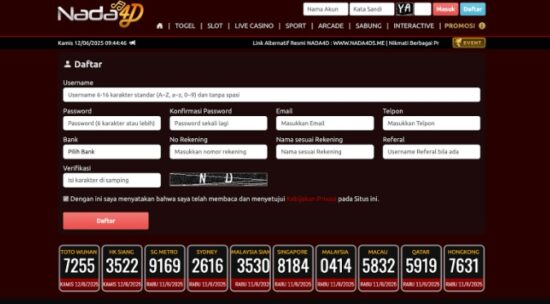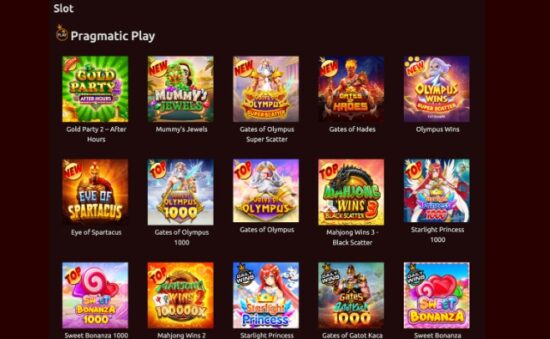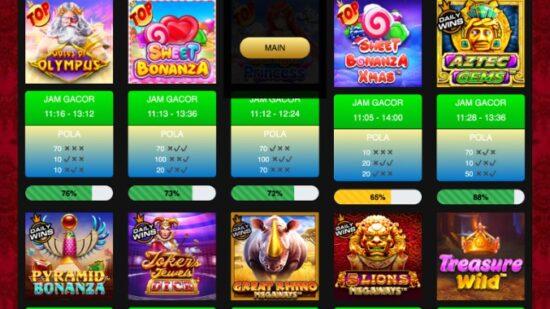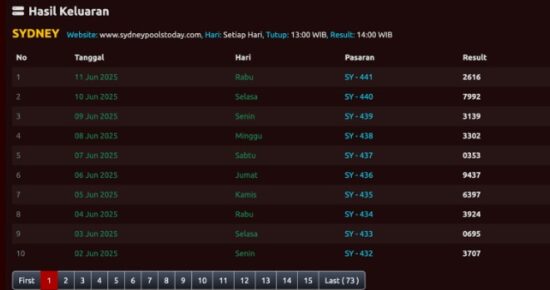Online gaming platforms are evolving fast—from fully immersive mobile games to real-time lottery systems that promise instant gratification.
One such platform gaining traction in Southeast Asia is Naza4D, which blends lottery-style games, betting, and casino entertainment into a single digital ecosystem.
As a game developer, I’m always curious about the systems behind these platforms: how they’re built, what tech stacks they rely on, and what their user experience (UX) teaches us.
But as someone who also cares deeply about ethical app design, it’s important to look at both the innovation and the potential harm these platforms can cause.
This article is a breakdown of how Naza4D works from a systems and user-flow point of view—with a strong caution about its risks.
Whether you’re researching platforms like this for UX inspiration or are a casual gamer curious about how it all functions, this guide is for you.
First: A Note of Caution
Let’s be clear upfront: The Game App Studio does not recommend using Naza4D or any gambling platform.
These platforms often operate in legally grey areas and carry serious risks—financial loss, identity theft, and even addiction.
This article is intended purely for educational purposes, especially for developers who want to understand live draw systems and transactional game mechanics.
What is Naza4D?
Naza4D is a digital gaming platform offering a mix of:
- Lottery draws (4D-style and other formats)
- Slot machine games
- Live casino tables (baccarat, blackjack, roulette)
- Sports and eSports betting
It’s designed to be accessible across mobile, tablet, and desktop devices with live results, auto-wallets, and a full user dashboard. In short, it tries to gamify chance—and that’s where the lines blur between entertainment and danger.
How Naza4D Works: System Flow Breakdown

For developers curious about mechanics, here’s a step-by-step breakdown of how the user flow typically works on Naza4D and similar platforms:
1. Account Creation and Verification
Users register with basic details (email/phone) and create a login.
Advanced platforms ask for ID or verification documents to process withdrawals.
🔍 Dev Tip: Many sites use SMS verification or 2FA—great UX for security-focused apps.
2. Depositing Funds
Users can fund their wallet using local bank transfers, e-wallets, or cryptocurrency. Minimum deposits are usually low ($5–$10 equivalent), but high-roller packages go into thousands.
UX Insight: These systems use gamified loading screens and animations to make funding feel like part of the game loop.
3. Choosing a Game

Users pick from categories like:
- 4D Lottery
- Spin-and-win slots
- Sports betting (live and upcoming games)
- Live Casino (HD streams with real-time dealers)
Each category is styled with bold colors, big jackpots, and countdown timers to simulate urgency.
4. Placing a Bet

The bet system is simple—select your numbers, team, or hand, enter your stake, and click “Play.” Winnings, if any, go straight to your wallet.
Dev Angle: These platforms use probability engines (RNG) that appear fair but are rarely audited externally. It’s a good reminder of why transparency matters in game development.
5. Watching Results Live

Most games feature a live dashboard, especially for lottery and sports. It updates in real-time and is often synced with a streaming backend. This mimics the “live win” experience found in Twitch-based gaming.
6. Withdrawal Process
Once users accumulate winnings, they can request a payout. Processing time ranges from 24–72 hours, and limits or ID re-checks may apply.
Common Issue: Many players report withdrawal failures or unresponsive support. More on this in the next section.
What to Do If You Run Into Problems with Naza4D
Despite its flashy interface, Naza4D users often face issues—particularly around payouts or account freezes. Here’s what you can do if you ever interact with such platforms and something goes wrong:
1. Contact Customer Support (If Available)
Use the in-platform live chat or listed contact emails. Take screenshots of conversations.
2. Check for Licensing
Look at the site footer or FAQ section for licensing info. If they mention regulation by authorities like PAGCOR (Philippines) or Curaçao eGaming, you may have a complaint route—but these are still limited.
3. Use Community Watchdogs
Sites like ScamAdviser, Trustpilot, and Reddit’s /r/scams often contain helpful threads or action steps.
4. Contact Your Bank or Payment Gateway
If you used a credit card or digital wallet, immediately alert your provider and dispute the transaction, if fraud is suspected.
5. Seek Help if Addicted
If you feel compelled to keep betting, it’s important to reach out. Resources like Be Gamble Aware can help.
Also Read: Latest Gaming Updates FeedGameBuzz
FAQ – What You Should Know Before Clicking “Play”
Is Naza4D legal?
Depends on your country. In some regions like Singapore or Malaysia, online betting is heavily restricted. Check local laws before even registering.
Can I really win money using Naza4D?
Technically, yes—but the odds are stacked against you. Most platforms like this rely on you losing more often than you win.
What happens if I get locked out of my Naza4D account?
Unfortunately, platforms operating outside strong regulatory frameworks may never respond. That’s part of the risk.
Are these games in Naza4D fair?
Unless externally audited, there’s no guarantee of fairness. RNG can be manipulated, and “live dealers” may not be live at all.
Is it worth building a platform like Naza4D as a developer?
No. It’s not only risky legally, but also ethically questionable. Instead, consider building ethical skill-based games with fair monetization models.
As someone who’s worked on both casual games and real-time multiplayer apps, I’m always fascinated by systems like Naza4D. They use powerful UX design and psychological triggers to keep players engaged.
But we can—and should—use that power responsibly. Gamifying chance can easily become exploitative. As developers, we have the ability to create experiences that are fair, fun, and mindful.
So if you’re inspired by the mechanics behind platforms like this, I challenge you:
Build something better. Something with meaning. Something that rewards skill over luck.
And if you’ve got an idea and need help building it? You know where to find me—right here at The Game App Studio.
